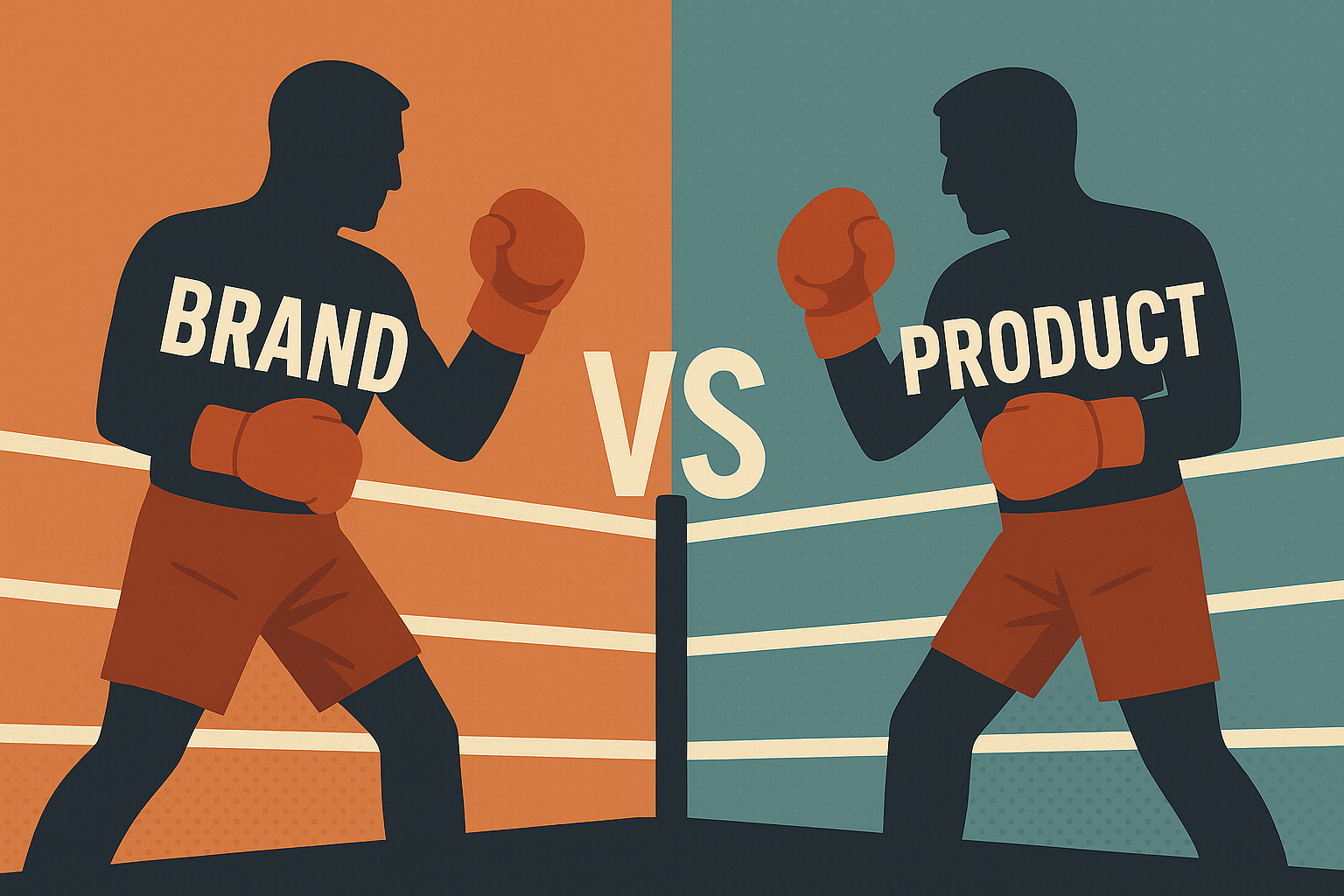In an oversaturated market, the war between brand and product is more relevant today than ever. While a product solves a problem, a brand creates connections. It’s not just what’s being sold—it’s how people feel when they buy it. This subtle but strong distinction is what makes long-term business success work, and it works beautifully in a culture-filled country like India.
In this blog, we will explore what makes a brand more than just a product, why emotional connections are important, and how agencies like Soulworks, a digital-led integrated marketing agency in Delhi NCR, help businesses—from commodity pushers to brand leaders!
Getting Started: Product vs. Brand
So let’s start with a basic definition.
Products: It is a physical commodity or a service that is defined by its features, its performance, and what it can be used for. Things like a smartphone, a camera, a washing machine, and a soft drink come under this category.
Brands: On the other hand, a brand is basically an emotional and psychological connection a customer has with a product or company. This relationship is built with the help of storytelling, consistency, trust, and experience. Consider names such as Tata, Amul, or Apple; they all appealed to feelings, values, and aspirations.
In short
- Products are produced in factories.
- Brands are built in minds.
In the Indian context, brands represent culture.
In India, the difference between a brand and a product depends on the emotions of customers because people develop deep emotional ties with the brands they support, and this kind of loyalty isn’t gained overnight. It’s supported by storytelling, value-based messaging, and local cultural relevance.
For example, companies like Haldiram’s are not just a snack brand—they’re an ideology, a way of life, a family legacy, and a symbol of Indian taste. Similarly, Kingfisher is not just a beer; it’s a reminder of a brave, youthful, colorful life.
Whereas other products find it hard to take off in Indian markets because they sell functionality but miss out on that emotional connection that local consumers are looking for.
Products Are Replicable. Brands Are Not.
Here’s the challenge for businesses: Products are not immobile and can be replicated, altered, or replaced. Factors like features, price point, and technology change over time. What remains constant is the brand value that an individual relies on.
Take the example of smartphones, where many companies have the same hardware and software, but still, people will stick with brands like Apple or Samsung due to their brand identity that they retain in the global market.
Thus, products provide access to the market, while brands grant a stake in this access in the long run.
The Emotional Power of Branding
It is commonly believed that consumers don’t have any memory of what you said, but they do remember how you made them feel. Great brands do not simply announce; instead, they listen, communicate, and grow with their people.
Whether it’s a street chai vendor branding his shop with a name or logo for his stall or a national carrier like Air India taking a decision to rebrand itself in order to regain pride, the core idea remains the same. Some people say a brand is basically a marketing communication perceived and validated by the consumer and entails the promise that the product will indeed deliver.
In the Indian market, this effective communication goes beyond individual purchases and becomes part of the way that people speak with their family, make choices that reflect their generation, and refer to products in their community.
Challenges of Building a Brand in India
Building a brand in India is not child’s play. With different cultures, languages, and values, the situation doesn’t fit all because everyone has different needs and demands. Brands must:
- Localize their messaging.
- Be sensitive to cultural nuances.
- Focus on trust-building over time.
Most startups or D2C (direct-to-consumer) businesses begin with a unique product but later fail to grow into meaningful brands. That is why it is necessary to master the tactics of strategic marketing.
Soulworks: Helping Brands Tell Better Stories
Soulworks, located in Delhi NCR, is a digitally led integrated marketing agency that understands this gap. We not only promote products, but we build brands. Our approach combines:
- Emotional storytelling
- Consistent digital branding
- Targeted campaign strategies
- Culturally nuanced content creation
Whether it’s social media management or integrated campaigning with a brand across multiple platforms, we help brands grow meaningfully and authentically. For Soulworks, there is nothing more important than a brand representing the soul of the individuals it caters to.
Why It Matters More Now Than Ever Before
Modern consumers don’t merely wish to purchase a product, but also want to have confidence in the product they are buying. For now and forever, what will last are the brands that have a reason for being and a purpose to serve.
Buyers do not wish to be associated with products and services that have values they do not share. Whether you want to convey that your product is environmentally friendly, has been in business for many years, introduced a new idea, or is exclusive, your message is more significant than what is being marketed.
This is the key distinction that sets a company apart from a product that a consumer buys, uses once, and probably will not remember again.
Final Thoughts
The war between brand and product is not actually a war – it’s an evolution. All iconic brands start with the product, but not all products grow into brands.
In order to grow brands in the Indian market, companies require something more than innovation. The factor that calls for insight, storytelling, and consistency is required, and most importantly, they need to be acquainted with people who are going to listen to them.
If you are tired of being just a product, then Soulworks is willing to assist you in transforming into a brand people will remember.

